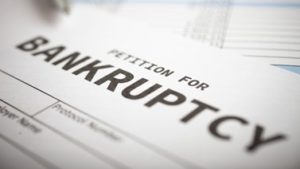Though rates remain high, Massachusetts sees slight drop in claims in first half of 2012. Declaring bankruptcy can provide a fresh start, but often consumers are overwhelmed by the process
Boston, MA – August 6, 2012

In Massachusetts, 9,118 individuals filed for bankruptcy in the first half of 2012, representing a filing rate of 2.79 per 1,000 people. This figure is down from 2011, when the Commonwealth saw a rate of 3.00 bankruptcy filings per 1,000 people, and from 2010, when the rate was 3.52 filings per 1,000 people.
In spite of the decrease, Massachusetts still has a relatively high bankruptcy rate, and the data suggest that many consumers are still struggling to manage their debts.
“The downturn has forced many Americans to exert a much greater degree of fiscal discipline, and we’re beginning to see that paying off with lower bankruptcy rates,” said Steve Trumble, President and CEO of American Consumer Credit Counseling, which is based in Newton, Mass. “Still, a great deal of individuals and families are struggling under the weight of insurmountable debts, and for many of them, bankruptcy remains their best option.”
Bankruptcy can mean relief from overwhelming debts and the freedom to start anew. Most people who file for bankruptcy are facing threats of repossession and perhaps imminent foreclosure, and filing for bankruptcy is sometimes the only way they can stay in their homes. But many Americans resist doing so because of the stigma attached to bankruptcy.
“Older Americans in particular often feel ashamed at having piled up so much debt, and they’ll go to great lengths to hide their problem from their loved ones,” Trumble said. “But retirement and medical care are growing ever more expensive in this country. Sometimes bankruptcy is the best chance a person has to stay in their home. That’s nothing to be ashamed of.”
While bankruptcy is a far more palatable option than foreclosure, it is an immensely complex process and can come with unforeseen drawbacks, which is why it is important to seek the advice of a certified bankruptcy counselor.
For one, it often isn’t possible for people to discharge all of their debts. Whether they can usually depends on whether they’re eligible for Chapter 7 bankruptcy or for Chapter 13. Under Chapter 7, debtors are able to completely discharge much of their debt, and all non-exempt property is seized, sold, and used to pay creditors. Under Chapter 13, however, debtors must file a repayment plan with the bankruptcy court to pay back their debts over time. Also, some types of debt, such as student loan debt, are protected against bankruptcy by law and cannot be discharged under any circumstances.
Before people can file for bankruptcy, they are legally required to speak to a bankruptcy attorney and to seek out pre- and post-bankruptcy counseling from a licensed professional.
“There are so many unknowns for people who are considering bankruptcy,” Trumble said. “How much debt can you actually discharge? Can you afford to file? What possessions are you allowed to hold on to? What are the risks to your credit score? These are questions that professional counselors can help you answer.”
ACCC provides both the pre-bankruptcy counseling and the debtor education course that the government requires before a consumer can discharge debts through bankruptcy. Counseling is available face-to-face, online, and over the phone. To make an appointment or get more information, call 866-826-6924 or visit online at ConsumerCredit.com.
About American Consumer Credit Counseling
American Consumer Credit Counseling (ACCC) is a non-profit 501(c)(3) organization dedicated to empowering consumers to achieve financial health through education, counseling, and debt management. ACCC provides individuals with practical solutions for solving financial problems and recognizes that consumers’ financial difficulties are often not the result of poor spending habits, but more frequently from extenuating circumstances beyond their control. As one of the nation’s leading providers of financial education and credit counseling services, ACCC works with consumers to help them with the best plan of action to reduce their debt and regain financial stability. ACCC is accredited by the Better Business Bureau and holds an A+ rating. It is also a member of the Association of Independent Consumer Credit Counseling Agencies. For more information or to access free financial education resources log on to ConsumerCredit.com or visit TalkingCentsBlog.com.
